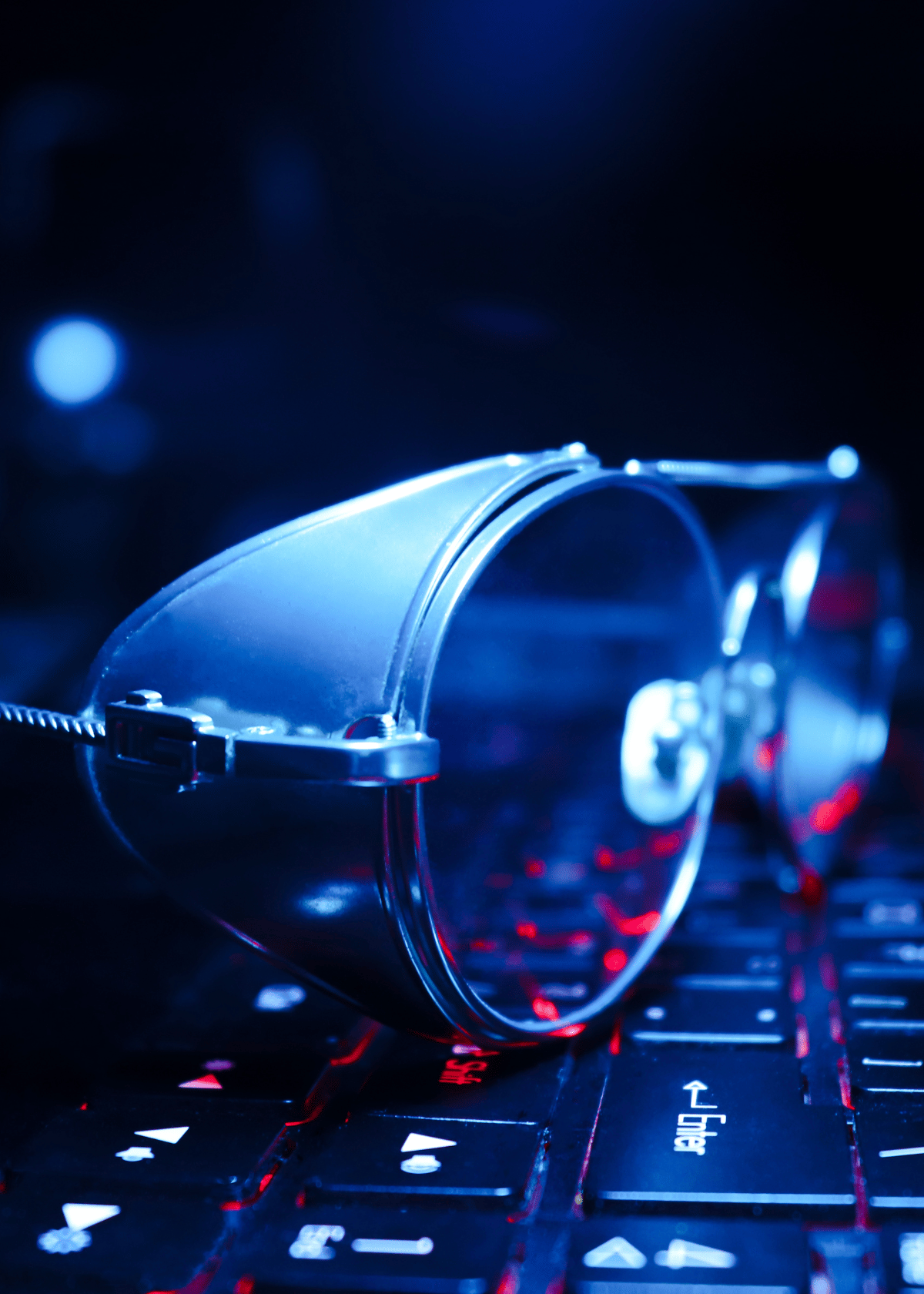Do you feel like your everyday tasks, such as working from home or going to class, are becoming more difficult? If so, you may be suffering from digital eye strain due to blue light exposure.
Blue light is a type of visible light spectrum that has shorter wavelengths and greater energy than other colors of the visible light spectrum and can penetrate deep into the eyes.
Wearing sunglasses that block out some of this blue light could help reduce digital eyestrain and improve overall visual comfort!
In this blog post, we’ll explore how blocking blue light with sunglasses can help protect your eyes and potentially improve your mood. Read on for more information about why sunglasses are good for protecting eyes against harmful blue light and tips on finding the right pair of shades!
What is Harmful Blue Light?
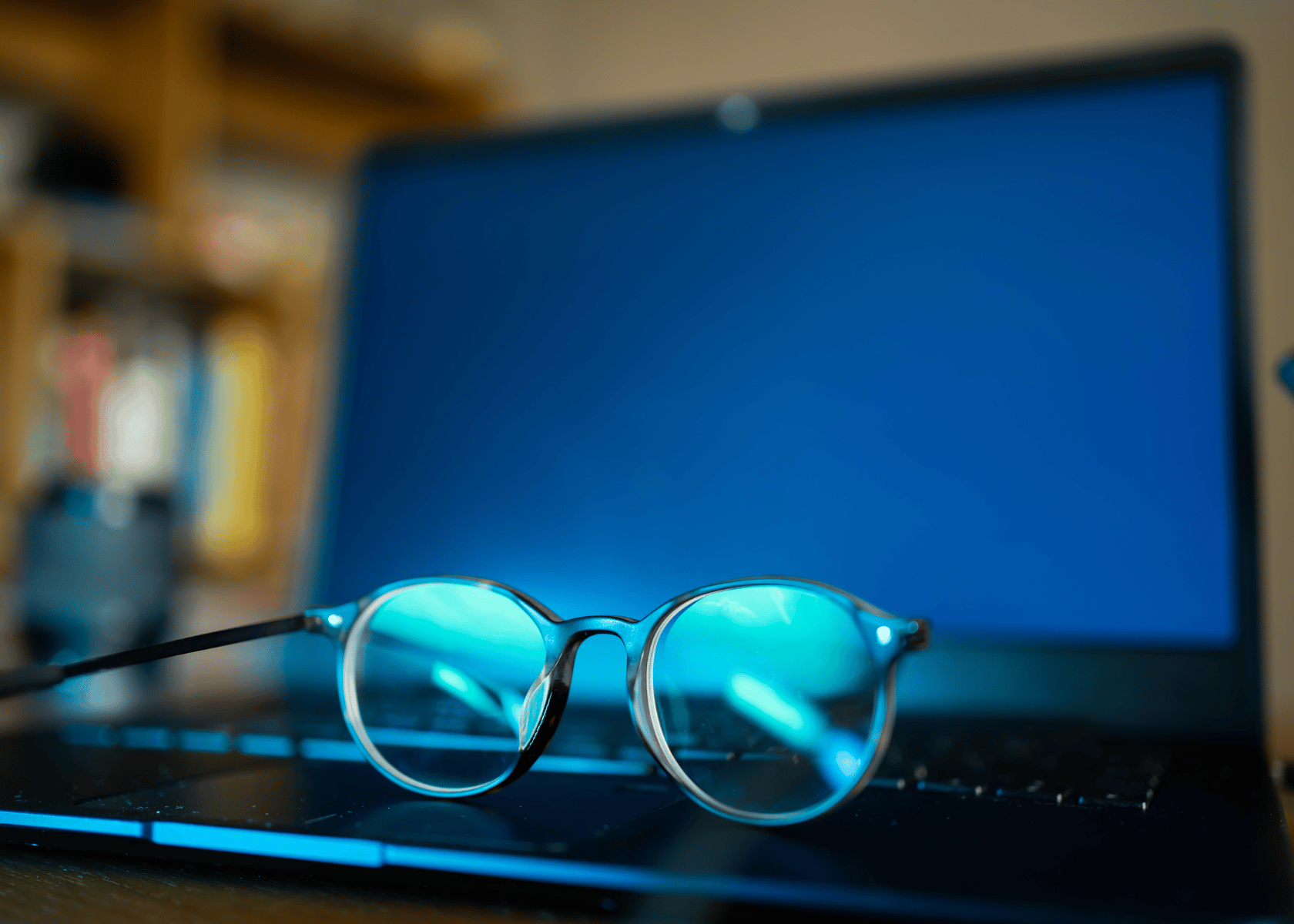
Blue light, also known as High Energy Visible (HEV) light, is a type of light that is emitted by digital electronic devices such as computer screens, smartphones, LED lights, and televisions. This type of light has a short wavelength and high frequency, which means that it oscillates at a faster rate than other types of light.
While blue light is present in natural sunlight, overexposure to artificial blue light can be harmful to our eyes and overall health.
Research has shown that prolonged exposure to blue light can lead to digital eye strain, headaches, disrupted sleep patterns, and other health problems. One of the main concerns associated with blue light is its effect on our circadian rhythms, which are the natural rhythms that govern our sleep-wake cycles.
Blue light can suppress the production of melatonin, a hormone that regulates sleep, making it more difficult for us to fall asleep at night. This can lead to daytime fatigue, decreased productivity, and other health problems such as depression and mood disorders.
Blue light can also cause damage to the retina, which is part of the eye that is responsible for sensing light and transmitting signals to the brain. Overexposure to blue light can lead to damage to the retina, which can cause a variety of eye problems such as macular degeneration and cataracts.
How Do Sunglasses Protect Eyes?

Sunglasses are more than just a fashion accessory—they are also essential for protecting our eyes from the harmful effects of UV radiation and blue light.
UV radiation is a type of energy that comes from the sun and is invisible to the naked eye. Overexposure to UV radiation can cause a range of eye problems such as cataracts, macular degeneration, and even skin cancer around the eyes.
Sunglasses protect our eyes by blocking out a portion of the harmful UV rays. This is achieved through the use of lenses that are treated with a special coating or made from materials that naturally block UV rays.
These lenses are able to absorb and reflect the rays, preventing them from entering the eye and causing damage.
Types of Lenses Used Against Blue Light Exposure
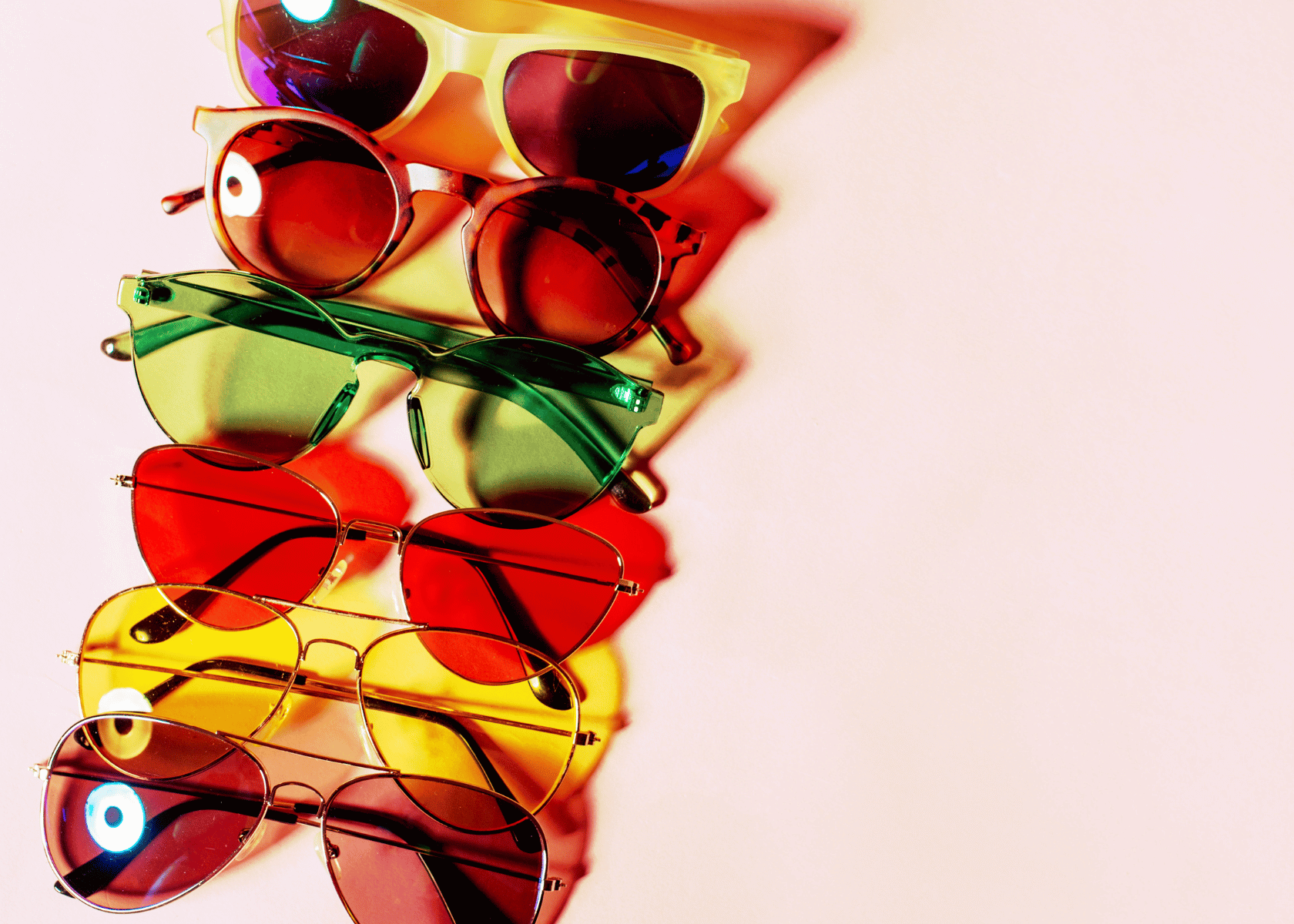
Polarized lenses are another popular type of sunglass lens that works to reduce glare and improve visual clarity. Polarized lenses are especially useful for outdoor activities such as fishing or skiing, where the glare reflecting off of water or snow can be especially harsh on our eyes.
Another type of lens that can be found in sunglasses is lenses that are designed to block out blue light. Blue light is a type of high-energy visible light that is emitted by digital devices such as computers, tablets, and smartphones.
While blue light is not harmful in the same way as UV rays, exposure to too much blue light can cause eye strain, headaches, and other discomforts.
Sunglasses with blue light-blocking lenses help to alleviate these symptoms by reducing the amount of blue light that enters the eye. In addition to providing protection from UV rays and blue light, sunglasses can also help to prevent other eye problems such as squinting and eye fatigue.
Squinting can cause wrinkles around the eyes and can lead to eye strain and headaches. Sunglasses block out bright light, reducing the need to squint and helping to alleviate these symptoms.
Best Blue Light Glasses
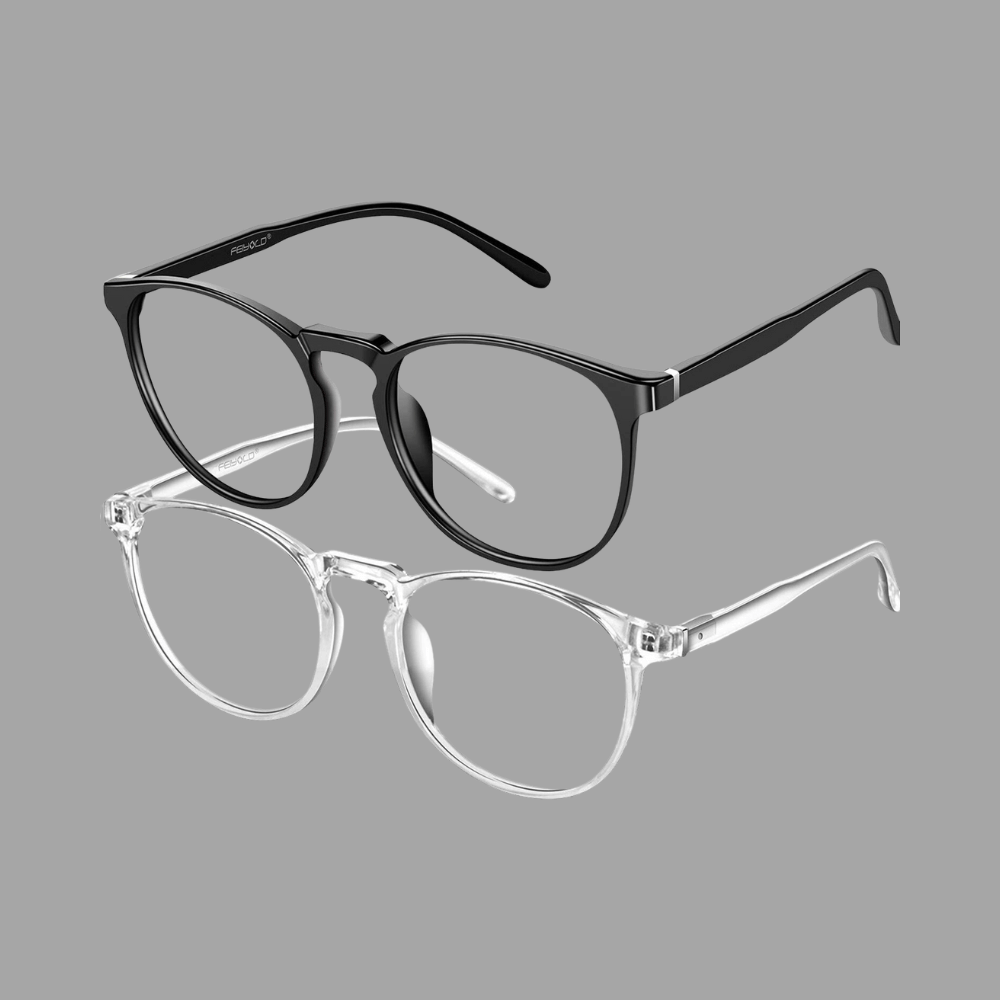
FEIYOLD Blue Light Blocking Glasses
The 3A transparent lens is specially designed to block 99% of the harmful blue ray spectrum (400-440nm) while promoting high transmittance (93%). Not only does it filter blue light, but this lightweight and durable TR90 frames offer long-lasting comfort. Plus, by reducing your exposure to blue light rays, you'll also prevent the production of melatonin from slowing or stopping, which can cause sleep disorders.
How to Choose the Best Blue Light Sunglasses?
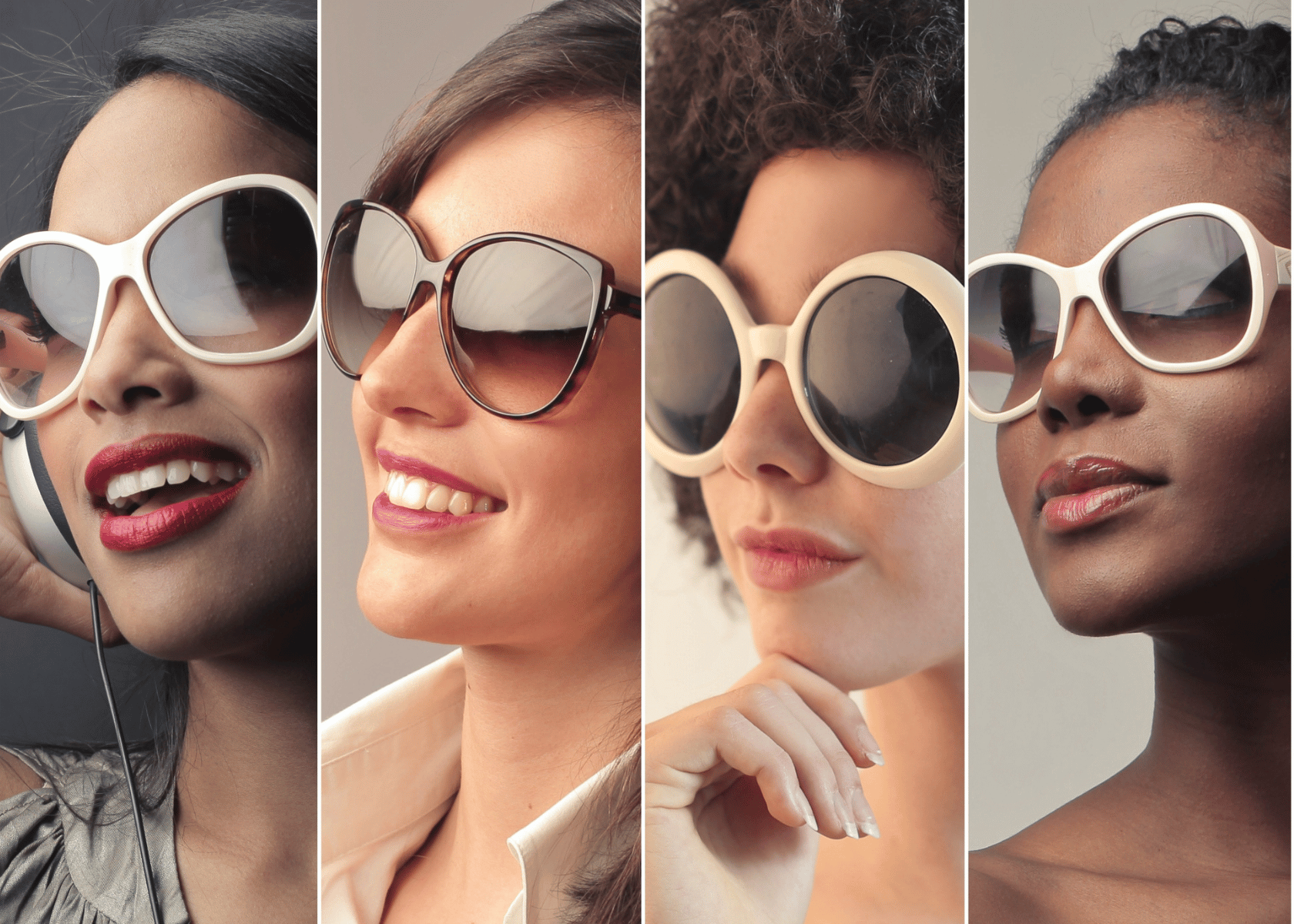
If you spend a lot of time working on digital devices or under artificial light, blue light sunglasses can be an excellent investment for protecting your eyes and reducing eye strain. Here are a few factors to consider when choosing the best blue light sunglasses:
Blue Light Blocking Technology
Look for sunglasses that are specifically designed to block out blue light. The best blue light sunglasses will have a yellow or amber tint to the lenses, which can block out up to 95% of blue light.
Lens Quality
The quality of the lenses is an important factor to consider. Choose lenses that are scratch-resistant, shatterproof, and made from high-quality materials for optimal durability.
Size and Shape
Choose sunglasses that fit your face well and provide adequate coverage to protect your eyes from all angles. Oversized sunglasses can be particularly effective at blocking out blue light.
Polarization
Polarized lenses can reduce glare and improve visual clarity, making them a good choice for outdoor activities or driving.
Comfort
Choose sunglasses that are comfortable to wear for extended periods of time. Look for sunglasses with adjustable nose pads, lightweight materials, and non-slip temples to ensure a comfortable and secure fit.
Brand Reputation
Consider purchasing blue light sunglasses from reputable brands that have a proven track record of producing quality eyewear with blue light blocking technology.
Sunglasses Block Blue Light FAQ
Many of us spend hours in front of digital screens every day, exposing ourselves to damaging blue light.
If left unchecked, this blue light can lead to headaches, eye strain, and even long-term vision damage. Moreover, there is a lot of confusing information out there about blue light protection.
Sunglasses are the perfect solution for protecting you from damaging blue light. Made with special lenses that block up to 70% of the most harmful frequencies, Sunglasses provide maximum protection without compromising style or clarity.
How do I know if my sunglasses are blocking blue light?
Regular sunglasses do not block blue light unless they specifically state that they have blue light blocking technology.
Look for sunglasses that are labeled as blue light blocking or that have a yellow, amber, or orange tint to the lenses, as these colors are effective at blocking blue light.
Will polarized sunglasses block blue light?
Polarized sunglasses are designed to reduce glare and improve visual clarity, but they do not block blue light.
Blue light blocking sunglasses use a different type of lens technology to filter out harmful blue light.
Should I wear sunglasses while using computer?
While sunglasses are helpful for blocking out UV and blue light when outside, they may not be necessary when using a computer indoors. Instead, consider wearing blue light blocking glasses that are specifically designed for use with digital screens.
Do sunglasses block blue light at night?
Sunglasses are not designed to block blue light at night. Instead, consider wearing blue light blocking glasses that have been shown to improve sleep quality by blocking out the blue light emitted by electronic devices and screens.
Are UV glasses the same as blue light glasses?
No, UV glasses and blue light glasses are not the same. UV glasses are designed to protect your eyes from UV radiation, while blue light glasses are designed to filter out harmful blue light emitted by digital screens.
However, some blue light blocking glasses may also provide UV protection, so it's important to check the label or with the manufacturer to be sure.
Take Away
Sunglasses are a helpful tool to protect our eyes from the effects of blue light. Whether you’re using them for fashion or for their health benefits, it is important to choose good quality lenses that can effectively block out harmful rays.
With polarized and special-coated lenses, wearers can now enjoy clear vision without having to worry about affecting the health of their peepers.
Of course, nothing can replace proper sun protection and eye health habits such as wearing broad-brimmed hats and avoiding staring at digital screens for long periods of time.
However, when taking these steps isn’t an option, wearing sunglasses is an easy way to make sure your eyes stay healthy in the long run.
So, next time you go for a drive or take your lunch break outside, don’t forget your pop of color with a chic pair of blue light-filtering lenses.


